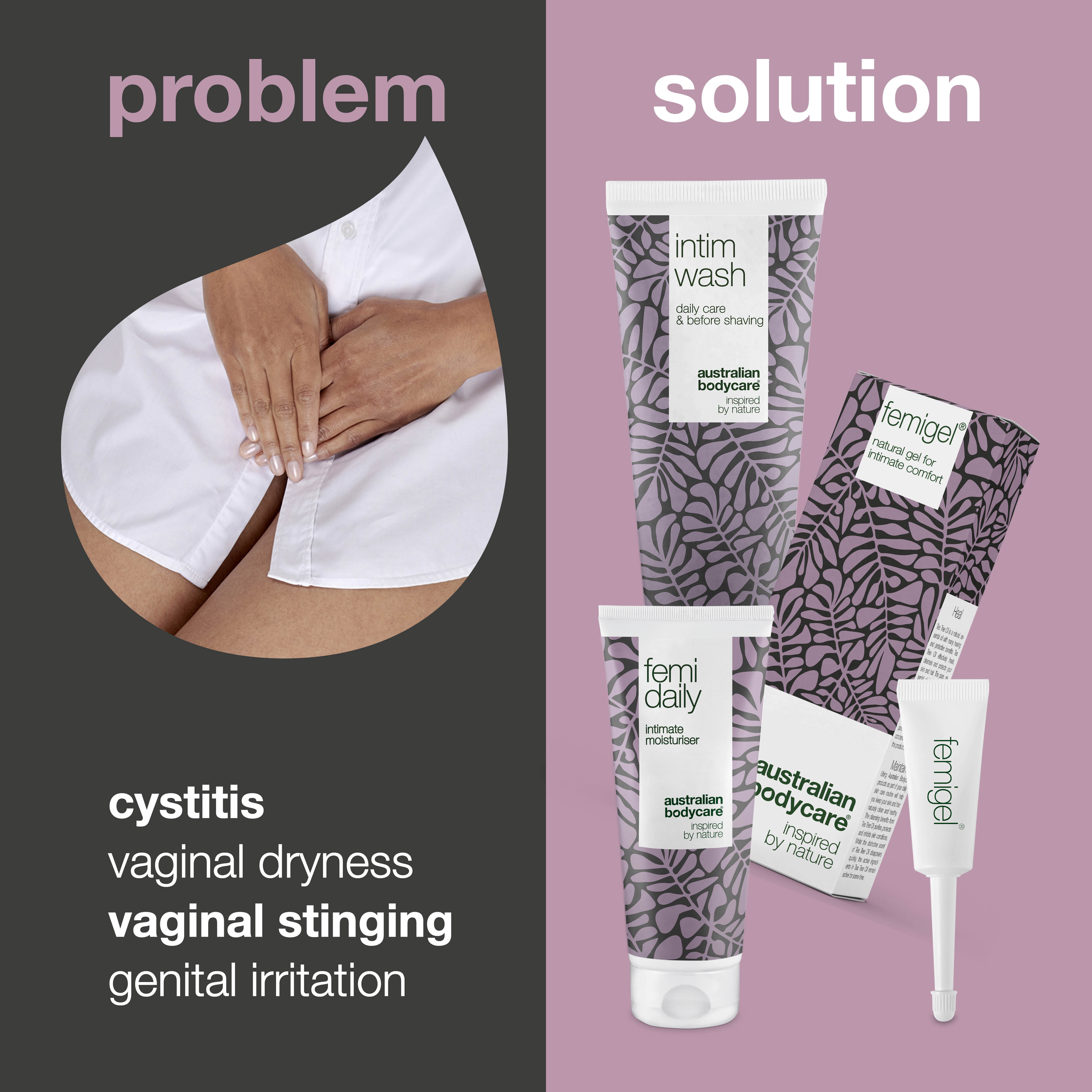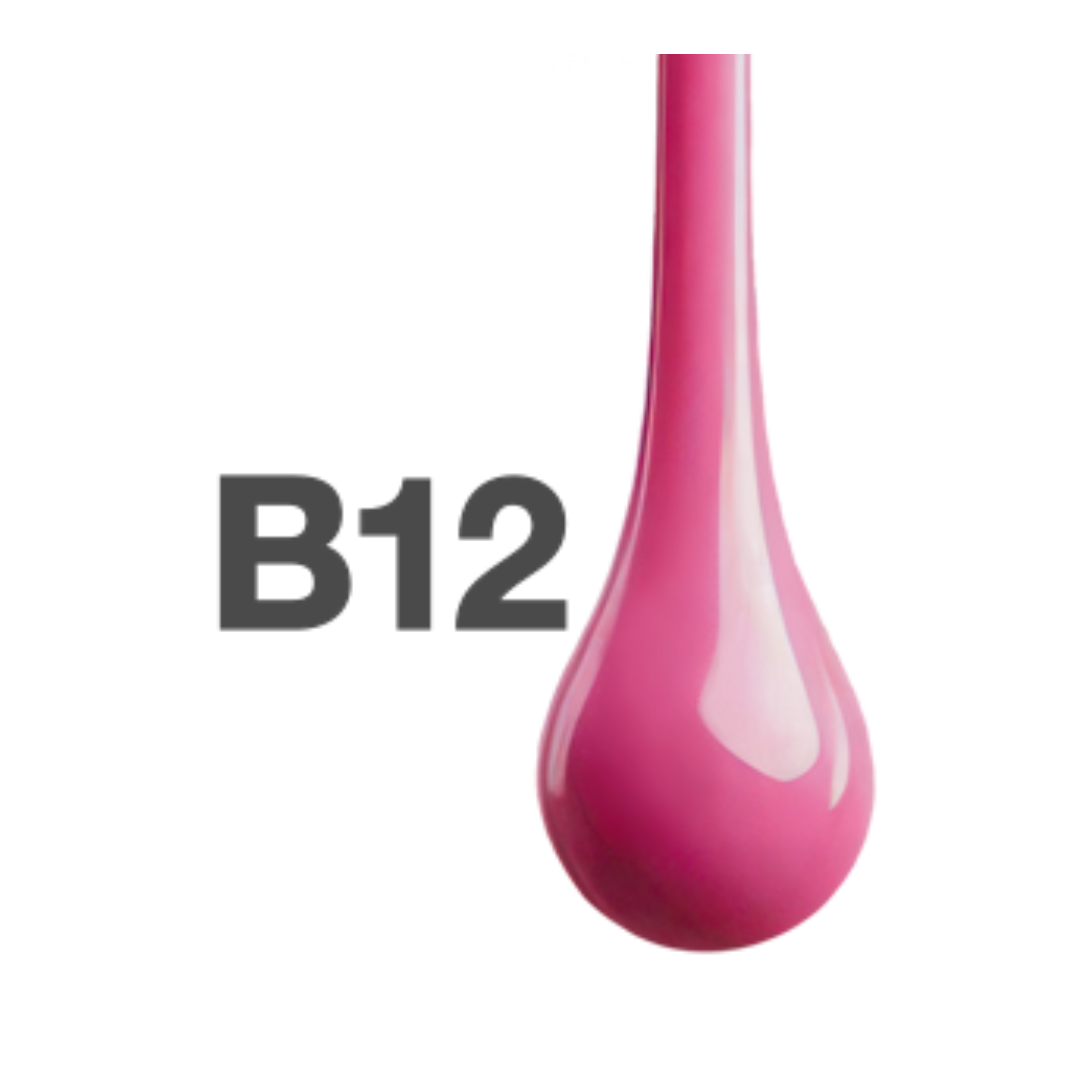How to Remedy Dry Mucous Membranes in The Vagina
From time to time, most women experience discomfort in their vagina due to dry mucous membranes. Dry mucous membranes are one of the biggest, most widespread genital problems women face, and it can cause serious pain and irritation.
The dry mucous membranes and the discomfort they cause can reduce your quality of life and well-being.
Jump directly to: Treatment of dry mucous membranes in the vagina
The good news is, there’s lots you can do to remedy the problems of dry and delicate mucous membranes in the vagina, so you can get that comfortable feeling back.
Learn more about the causes of dry mucous membranes and how to treat the problem with effective gels here.
Table of contents
What Are Mucous Membranes?
There are many mucous membranes in different parts of the body. This includes the nose, eyes, bowel, mouth, lungs, airways and urinary tract. Mucous membranes are an internal layer of cells that are covered with a thin layer of mucus – hence the name mucous membranes.
All the mucous membranes in the body are, more or less, built up in the same way. In fact, they are, part of your body’s immune system, which helps to protect you from foreign substances, bacteria and infections that try to penetrate your body.
Jump directly to: Treatment of dry mucous membranes in the vagina
With a well-functioning and healthy mucous membrane, it is difficult for foreign substances to find their way in – the mucous membranes function as a kind of shield. But when the mucous membrane function is reduced, for example if they dry out, it becomes much easier for bacteria to attack.
It is therefore important that you keep your mucous membranes healthy and strong so that you are best equipped for stopping foreign substances that could cause bacterial infections.
Dry mucous membranes in the vagina may, for example, cause a fungal infection in the vagina. When the mucous membranes dry out, this can change the pH of the vagina, which causes the natural bacterial balance to falter.
It gives the fungus and bacteria ample opportunity to multiply and turn into an infection.
Dry mucous membranes and fungal infections are an unpleasant mix.
What Is Dryness in The Vagina?
Dry mucous membranes and dryness in the vagina indicates an unpleasant condition within the abdomen. This causes the vagina to feel dry and irritated because the wall or mucous membranes are weakened for various reasons. The medical term for the condition is vaginal atrophy.
Dryness in the vagina occurs when mucous membranes are insufficiently moist and the dry sensation of the vagina is often accompanied by severe irritation and discomfort.
What Do Dry Mucous Membranes Feel Like?
Dry mucous membranes in the vagina are an extremely bothersome problem. This is simply because it’s very uncomfortable for the women who are affected by it. Many women describe the feeling as like having sandpaper inside the vagina.
Most people can imagine that this is not a nice feeling. The dry vagina can cause itchy, irritating and burning sensations, and the pain can be located both inside the vagina and around the vagina, on the outer and inner labia.
The opening of the vagina may even feel closed or narrowed because the mucous membranes have lost some of their elasticity. You can compare it to the skin on your face – moisturised, healthy skin is much more elastic and flexible than dull, dry skin.
The same applies to the skin and mucous membranes in the vagina.
The uncomfortable and unpleasant pain in the abdomen can make normal everyday tasks painful. Running, cycling and other forms of exercise can trigger a lot of pain because the movement enhances the feeling of having “sandpaper” in the vagina.
It also means that sex becomes very painful and is followed by great discomfort.
Symptoms of Dry Mucous Membranes in The Vagina
If you are in doubt about whether you have dry mucous membranes in the vagina, it is always a good idea to seek out your doctor. Together, you can find out if you have dryness in the vagina, and if so, you can find a treatment that is right for you.
If you suspect that you have dry mucous membranes in the vagina, check to see which of the following symptoms you have. You should carefully monitor them.
If you experience any of the following symptoms, you may have weakened and dry mucous membranes in the vagina.
The most common symptoms of dry mucous membranes in the vagina are:
- Dryness. As described earlier, the skin’s mucous membranes and walls may feel like sandpaper. It does not feel good down there at all.
- Stinging. You may feel stinging and burning sensations in the vagina. It is often especially uncomfortable when you move or urinate.
- Itching. Dry mucous membranes often itch. Just like the skin on the rest of the body, when it dries out it is more prone to itching than well-moisturised skin.
- Irritation. The dry mucous membranes cause vaginal irritation. Again, dry skin is more susceptible to redness and irritation than moist skin.
- Bleeding. The dry mucous membranes are much more prone to cracking and splitting – this can cause bleeding in some small areas. This can happen during sex or even when doing simple, everyday tasks.
Who Gets Dry and Weakened Mucous Membranes in The Vagina?
You can have dry mucous membranes in several places on the body, but in this article we are focusing on dry mucous membranes in the vagina. It is a very troublesome problem for a large number of women.
The problem of weakened and dry mucous membranes in the vagina can affect women of all ages, but especially women experiencing menopause, women who are taking birth control pills, and pregnant women.
These women may experience increased dryness and irritation of the vagina. This is typically due to hormonal fluctuations.
The causes of this problem are explained further down in this article. It is estimated that up to 9 in 10 women are bothered by dryness in the vagina at some point in their lives.
Jump directly to: Treatment of dry mucous membranes in the vagina
What causes dry mucous membranes? – Why Do You Have Dry Mucous Membranes?
Why exactly do you get dry mucous membranes in the vagina? It is a question that requires more complex answers. There are many reasons why your vaginal mucous membranes dry out, causing pain, irritation and discomfort. The most common reason for dry mucous membranes in the vagina is that you lack oestrogen.
Low Levels of Female Sex Hormones
In most cases, a decrease in oestrogen levels is the cause of dry mucous membranes in the vagina. Oestrogen is also called the female sex hormone, and when girls hit puberty they start to ovulate and produce vaginal fluids.
These fluids appears as a discharge: a wet secretion in the vagina that helps keep moist and self-cleaning conditions.
Therefore, your production of oestrogen helps keep the mucous membrane of the vagina moist, as well as maintaining a healthy environment for the natural cultures of lactic acid bacteria.
Lactic acid bacteria are important for keeping a low pH in the vagina, which enables healthy, natural bacteria to thrive, making you resistant to bacterial and fungal infections.
You produce oestrogen in your ovaries from puberty until menopause, when the volume of oestrogen produced begins to fall. As the volume of oestrogen decreases, the volume of lactic acid bacteria and moisture in the vagina also decreases.
This means that the skin’s mucous membranes dry out, the elasticity disappears and the membranes wither.
All of this makes your mucous membranes in the vagina weaker and vulnerable.
Decreasing oestrogen levels are most commonly due to menopause. But there may also be other reasons why your production of oestrogen is decreasing and causing problems in the form of dry mucous membranes.
Reasons for reduced oestrogen:
- Eating disorders and excessive exercise can affect the menstrual cycle and result in missing periods.
- Smoking reduces both blood circulation in the abdomen and oestrogen production in the ovaries.
- Breastfeeding may cause menstruation, ovulation (and as a result oestrogen production) to stop briefly.
- Diseases such as ovarian cancer.
- Removal of the ovaries.
- Chemotherapy may also reduce oestrogen production within the ovaries.
Birth Control Pills and Other Medicines
The cause of weakened and dry mucous membranes in the vagina may also be the use of birth control pills or other forms of medicine. When taking birth control pills, you give your body an extra dose of hormones.
This may cause side effects that reduce the mucous membrane’s natural secretion of fluids.
It therefore creates an imbalance in the mucous membranes of the vagina, which can become more sensitive as they are not moist enough.
Antidepressants and antibiotics are other examples of medicines that may have the same side effects on the production of fluids in the vagina.
Vaginal Fungal Infections
Yeast in the vagina may be another reason why your mucous membranes feels dry and weak. On our skin there are natural microorganisms and fungi – it’s the same within the vagina. In small amounts they are harmless but when the Candida albicans bacteria, the cause of many fungal infections, are allowed to multiply, they become a real problem within the vagina.
The vagina is the perfect place for yeast fungi to grow because it is hot and moist. When the fungi are in optimal growth conditions, they interfere with the natural balance with the mucous membranes’ microorganisms.
This then results in a fungal infection that, in addition to drying out the mucous membranes, also causes itching and foul odours.
Bacterial Vaginosis
The vagina contains an ocean of naturally occurring bacteria. However, when there is an imbalance among the natural bacteria, vaginal discomfort may occur. If one of the vaginal types of bacteria grows more than the others, this causes an imbalance.
This condition is called bacterial vaginosis, which is a form of vaginitis, which in turn can be termed inflammation of the vagina.
Inflammation of the vagina may occur, for example, when discharge from the vagina is mixed with semen. The vagina’s environment is acidic, while sperm is neutral. And when the two meet on the acid scale, it can bring the vagina’s natural bacteria into imbalance.
It often causes odour problems with a fish-smelling discharge, but it may also cause dry and irritated mucous membranes to itch.
Excessive Intimate Hygiene
Many women want to keep themselves clean and fresh in the genital area, and therefore they often wash themselves thoroughly with water and soap around the vagina.
While it is important to maintain good intimate hygiene, excessive washing in this area may cause dryness in the vagina. Water and soap dry out the mucous membranes. It simply disrupts the vagina’s natural bacterial balance.
Directing water jets and rinsing with a shower head in particular push the natural vagina conditions out of balance, which can cause irritated and dry mucous membranes.
We always recommend using a good intimate soap when washing in intimate areas.
Dry Mucous Membranes During Menopause
Though dryness in the vagina may affect women of all ages, dry mucous membranes are commonly associated with menopausal women. It is especially this group of women who experience the painful symptoms within the vagina.
Up to half of all menopausal women are bothered by dry mucous membranes every day. This mostly applies to the vagina, but the mucous membranes in the mouth, throat, nose and eyes can also be affected.
As previously mentioned, this group of women are particularly susceptible to the problem as oestrogen production is reduced when menopause starts.
As the oestrogen levels fall, the mucous membranes and moisture levels fall too. The vaginal mucosa cells die and are replaced by cells that form a thinner mucous membrane. This means that the mucous membrane of the vagina is now more vulnerable.
READ MORE: Treat dry mucous membranes during menopause
Dry Mucous Membranes During Sex
Dry mucous membranes in the vagina are not just a problem during everyday routines. They can also be an obstacle to a healthy sex life. The dry mucous membranes affect sex life because during intercourse they often cause severe pain.
Together with decreased oestrogen production, the nerve endings in the vagina move closer to the surface of the skin. This means that during intercourse there is increased discomfort due to friction. When pain is associated with sex, it is natural for the woman to have reduced sex drive. It therefore often destroys intimacy in a relationship.
If you do not produce enough natural lubrication yourself, it is a good idea to apply a lubricating gel to aid sex. The gel helps make things slide a little easier. When you use a gel, friction decreases, and the dryness of the vagina opening is remedied by the moisture.
For example, try the Australian BodyCare Intimate Glide, which reduces discomfort by giving a moisture boost that helps the dry mucous membranes become slick.
The gel is made from natural ingredients and its high tea tree oil content soothes irritation and itching; problems that many women experience after sex.
Also, keep in mind that it’s always a good idea to make time for thorough foreplay before the actual intercourse.
This gives you plenty of time to create enough moisture, so sex becomes a pleasure rather than a pain.
Treatment of Dry Mucous Membranes in The Vagina
The discomfort from dry mucous membranes in the vagina can be so pronounced that it is almost crippling, and it certainly decreases your quality of life. If you experience dryness in the vagina, it is therefore important to address the problem.
Many women suffer silently for absolutely no reason whatsoever – there are many simple treatments for dry mucous membranes.
You should always go to a doctor if you have even the smallest worry about your sexual health, so that he or she can help you with the right treatment.
In the vast majority of cases, your doctor will treat you with a simple course of hormone supplements that boost your oestrogen production to restore moisture to the vagina.
Another common treatment is hyaluronic acid, which is found naturally in the body and also in your mucous membranes.
Hyaluronic acid effectively binds fluid and thus helps restore the mucous membranes lack of moisture and elasticity in the vagina.
Use A Lubricant to Relieve Dry Mucous Membranes
There is also much that you can do to remedy the dry mucous membranes at home. If you are not fond of the idea of hormone treatment, you can get natural aids at Boots and pharmacies.
Australian Bodycare’s Femigel and Femi daily have just been developed to eradicate dryness and bring moisture and joy back to your intimate life. There is no need to battle with intimate discomfort when the two gels easily and safely remedy dryness, itching and irritation.
Femigel is an effective first aid for those who suffer from pain and irritation due to dryness. The hormone containing gel is made from natural ingredients that mildly soothe the delicate skin of the intimate areas. With a nourishing ingredients including Australian tea tree oil, the gel has a soothing and cooling effect on the dry and delicate skin.
Tea tree oil counteracts bacteria thanks to its antibacterial properties that help maintain healthy intimate hygiene. The moisture and elasticity around the vagina is improved and the gynecologically tested gel has, in a clinical trial, eliminated vaginal dryness and irritation for 94% of the women involved.
While Femigel is especially developed to treat existing discomfort, you can use Femidaily to keep the vagina from drying out in the first place. On a daily basis, the gel helps to counteract both bacterial imbalance and dryness by maintaining the skin’s natural moisture content and counteracting itches and irritation.
The gels have a smooth and light texture that makes them easy to apply. Femigel can be used twice a day in the case of severe dryness, and once every three days in mild cases. Femidaily you can use every day to add moisture once the Femigel treatment has soothed the dry mucous membranes.
Prevent Dry Mucous Membranes in The Vagina
In addition to using the Femi daily gel to prevent dryness, there are also a number of other remedies to replenish the delicate and irritated mucous membranes. Make sure you:
- Avoid excessive use of tampons and pads. These irritate the vagina and prevent the skin from breathing.
- Use cotton panties. Panties made from artificial or synthetic materials can cause irritation and further dryness.
- Do not wash your intimate areas excessively – and never wash inside the vagina. All that’s needed is a wash with a little water. If you do not feel that you are completely clean with water only, you need an intimate soap. For example, use the Australian BodyCare Intimate Wash, which is mild for the delicate skin of intimate areas. Harsh soaps and excessive washing can alter the natural balance. Wash with intimate wash on the outer genital area and around the outer lips.
- Have regular sex. When sexually aroused, blood circulation increases in the body and also in the vagina. This helps to improve your vaginal tissue’s health. Several studies have shown positive results when using a vibrator that boosts the bloodstream and strengthens the production of fluids by sexual excitement.
- Moisturise your body from within with healthy oils. Skin benefits from being moisturised from within. Take a daily dietary supplement of fish oil and make sure you eat a diet filled with good, nutritious oils. For example, avocado, linseed, virgin olive oil, almonds and coconut oil are all good and healthy fats.







